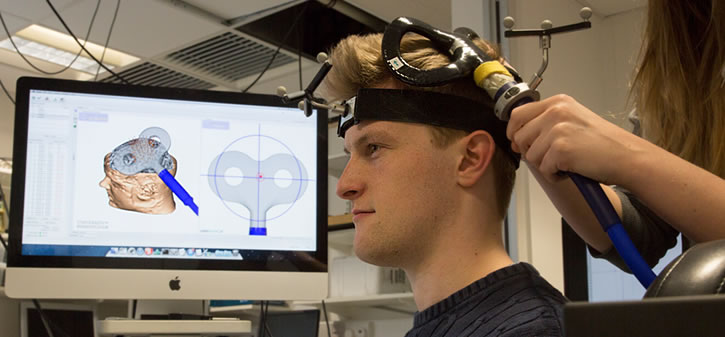Return to play following concussion
 We aim to better understand the physiological underpinnings of concussion and to use this knowledge to develop physiological tests that will be used to aid the return to play decision following a mild traumatic brain injury.
We aim to better understand the physiological underpinnings of concussion and to use this knowledge to develop physiological tests that will be used to aid the return to play decision following a mild traumatic brain injury.
Concussion is a common form of traumatic brain injury (TBI) In the US, the Center for Disease Control and Prevention estimate that 1.6 to 3.8 million concussions occur in sport and recreational activities annually, and many believe the number may be much larger, as the majority of incidents are unreported.
Repetitive concussions have the potential to result in a catastrophic form of brain injury known as the second impact syndrome (SIS)
Most athletes improve rapidly following a single concussion, but 20% of individuals have persistent symptoms at three months. In a small minority the symptoms may become permanent. Repeated concussion prolongs recovery times after each incident. Children are particularly vulnerable to concussion and with girls reporting greater incidence and severity than boys.
Repetitive concussions have the potential to result in a catastrophic form of brain injury known as the second impact syndrome (SIS), thought to be due to the second insult occurring inside a window of metabolic vulnerability of the brain.
Compounding the problem is the fact that, currently, there is no validated clinical biomarker available to assess concussion, leading to an over-reliance on self-reporting. However, athletes, like soldiers, are highly trained, young, fit, motivated individuals who frequently under-report concussive symptoms.

Transcranial Magnetic Stimulation test to determine brain response
What are the outcomes of this research?
The aim is to develop techniques that will one day make pitch-side diagnosis of concussion completely scientific and objective.
This work was discussed in various national and international media outlets including: BBC Breakfast, BBC World News, BBC and CBC Radio.
People involved